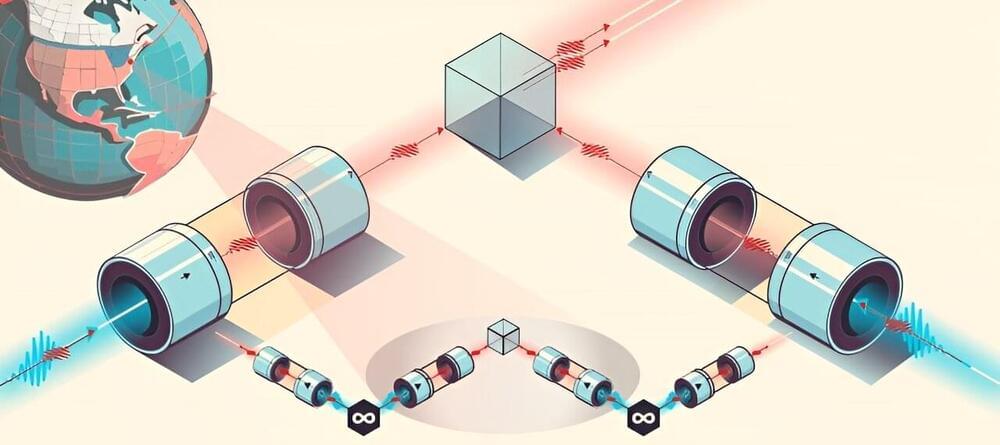Hong-Ou-Mandel interference of single-#photon-level pulses stored in independent room-temperature #quantum #memories Quantum #repeater #networks require independent absorptive quantum memories capable of #storing and #retrieving indistinguishable photons to perform high-repetition entanglement…
Research with quantum computing and quantum networks is taking place around the world in the hopes of developing a quantum internet in the future. A quantum internet would be a network of quantum computers, sensors, and communication devices that will create, process, and transmit quantum states and entanglement and is anticipated to enhance society’s internet system and provide certain services and securities that the current internet does not have.
A team of Stony Brook University physicists and their collaborators have taken a significant step toward the building of a quantum internet testbed by demonstrating a foundational quantum network measurement that employs room-temperature quantum memories. Their findings are described in a paper published in npj Quantum Information.
The field of quantum information essentially combines aspects of physics, mathematics, and classical computing to use quantum mechanics to solve complex problems much faster than classical computing and to transmit information in an unhackable manner.








